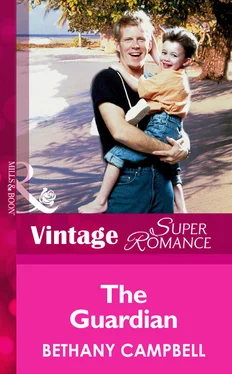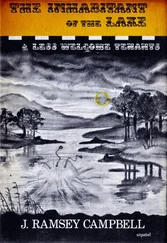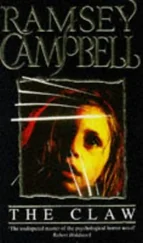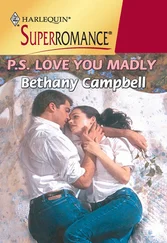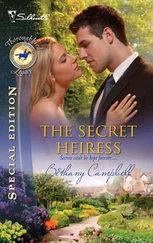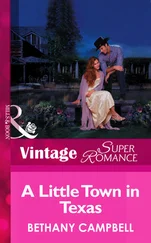Kate blinked in surprise. “No. He hasn’t told me much at all. Including that.”
Corbett chuckled. “That’s Hawkshaw. He plays it close to the vest.”
He doesn’t wear a vest, Kate wanted to retort. He wears hardly anything.
Instead, she said, “You didn’t tell me you were sending us to the Great Dismal Swamp. This place is precisely in the middle of nowhere.”
“The middle of nowhere is where you need to be,” Corbett said. “How are the accommodations?”
Kate glanced ruefully around the cluttered kitchen. “‘Primitive’ might be the word.”
“And your host?”
“‘Primitive’ might still be the word. I think I can teach him to say, ‘Me Tarzan.’ I’ll pass on telling him ‘Me Jane.’”
Corbett laughed again. “He said after twenty years of suits, ties, and protocol, he was going back to nature again. Sounds like he did.”
“More than I can tell you,” said Kate, not in admiration.
“He deserves it,” Corbett said.
“I offered to clean up his house and he nearly bit my head off,” Kate said. This was an exaggeration, but when she’d raised the subject, Hawkshaw had been curt.
“You’ll get used to him. How’s Charlie like him? Just fine. I bet.”
“Just fine would be putting it too mildly,” Kate said from between her teeth. “Charlie’s—quite taken.”
“Oh, yeah,” Corbett said, “he’s great with kids, always was. A legend in his time.”
“Doesn’t he—” she hesitated, curious but not wanting to appear so “—he doesn’t have any of his own?”
Hawkshaw was in his early forties by her reckoning; he might well have children who were grown up by now. Even grandchildren, she thought, rather shocked at the idea.
“No, he never did,” said Corbett. “Damned shame.”
She chose her words with care, said them as casually as she could. “But he’s been married?”
“Hawkshaw? Lord, yes. Most married man I ever knew.”
What’s that mean? she wondered in bewilderment. “But he’s alone now? What happened?”
“Divorce,” Corbett said. “It goes along with the territory too often, with the Secret Service. But it’s not my place to talk about his private life.”
But you told him all about mine, Kate thought rebelliously, then was ashamed of herself. Corbett was an honorable man who had done everything in his power to help her.
She said, “Where are you calling from? A pay phone?”
“Yes.”
She suppressed a sigh. The stalker knew so much about her that Corbett believed it was possible the man could be tapping into phone lines, even Corbett’s own. To be safe, Corbett had been keeping in touch with Hawkshaw through pay phones chosen at random.
Squaring her shoulders, she said, “Any leads, Corbett? I’d love to call this trip off and come home.”
“Sorry, Kate. If the stalker knows you’re gone, he’s given no sign. You need to stay put for the time being. You’re in good hands.”
I don’t want to be in anybody’s hands. Except my own.
But she forced herself to be calm, businesslike. “You’ve checked my apartment? Nothing on my answering machine?”
“Nothing out of the ordinary. An insurance salesman. A call from some woman named Mitzi, says she’s in your reading group.”
Kate winced. Her reading group, which met once a month to discuss a current book, had been the only adult social life she’d had left. But she’d skipped it for so long that it already seemed part of a distant past.
“Any significant mail?”
“Mostly junk,” said Corbett. “A notice from your vet. Maybelline’s due for some kind of shot and checkup.”
“Drat,” she said. “I forgot. She’s got a bad hip and a weird allergy. She has to have her shots or she gets all achy and itchy. I’ll have to find a vet here. If I can find one that doesn’t specialize in alligators.”
“Let me know if you need her records sent. I’ll get it done.”
“Thanks,” she said, her throat suddenly tight. “I appreciate it. I appreciate you.”
“Kate—I’m sorry it’s come to this. That you and Charlie have to suffer this dislocation. I wish it were different. This guy’s long overdue to make a slip. If he does, I’ll do everything in my power to get him.”
“I know you will.”
“Take care, Kate.”
“Corbett?”
“Yes?”
“Be careful yourself. He may get angry at you when he finds out I’m gone.”
“Hey, let me do the worrying for a while. You’ve held the monopoly on it too long.”
After Kate hung up, she missed the sound of Corbett’s familiar voice, felt a rush of loneliness for home. But, she told herself sternly, homesickness was futile. It was good for nothing.
“This guy’s long overdue to make a slip,” Corbett had said. “If he does, I’ll do everything in my power to get him.”
“If,” Kate murmured. That was the word that cast such a long, cold shadow over her life and Charlie’s, even in the bright sunshine of Florida.
HAWKSHAW LIKED THE KID. He had a quick, lively mind, although sometimes it was too lively for the boy’s own good; Hawkshaw had seen that immediately.
He decided the best strategy for the day would be to keep the kid too busy to notice how troubled his mother was. Kate Kanaday might toss her fiery hair and speak with a tart confidence, but she was worried, deeply so.
She’d sat on the deck much of the morning with a book she didn’t read, mostly looking off into the distance like a sad princess held prisoner in a tower.
Hawkshaw knew the dark mangrove islands and the twisting tidal streams could make some people feel closed in, even trapped. The backcountry seemed both marsh and jungle to them, its heart full of shadows.
When Kate came out of the kitchen after Corbett’s phone call, she went to the far corner of the deck. She stood, staring out longingly toward the one small, distant glimpse of open ocean.
Beside him, Charlie was solemnly reeling in his line to check his bait.
“Let’s go out for lunch today.” Hawkshaw told the boy gruffly. “To celebrate your first day here. And see a little more of the Keys. What say?”
“Will we see the ocean?” Charlie asked, looking up at him eagerly. The boy had his mother’s eyes, so deeply brown they seemed almost black. They gave Hawkshaw a strange twinge.
“We might see some of it,” Hawkshaw said, and gave the bill of the boy’s cap a teasing tug. “Go wash your hands.”
Hawkshaw decided to take them in his father’s disreputable convertible, an ancient Thunderbird that was partly robin’s-egg-blue, but mostly red with rust. The kid immediately fell in love and clambered into the back seat and buckled his seat belt. The woman eyed the car as if it were the wreck of a particularly sinister flying saucer, but she got in.
Hawkshaw gunned the big motor and took the winding road back to Highway 1. He headed for his favorite fish and chips shack, with outside tables overlooking the Gulf of Mexico.
They had conch fritters and French fries, and for dessert slices of tart Key lime pie topped with clouds of meringue. Charlie was enchanted by a brassy old seagull who would skydive for French fries tossed into the air. Kate smiled to see the kid laugh, but her smile was sad, and she said little.
After lunch, Hawkshaw drove farther north to the beach at Bahia Hondo. He disliked the beach because it always teemed with people, but it was a good beach for a kid to learn to play in the sea, to literally get his feet wet. The water was shallow for a long way out, and the bottom mostly sandy and smooth.
Charlie ran ahead of them, darting right and left, dashing into thigh-deep water, then wading, laughing back.
The tide was going out, the water was calm, and a soft breeze stirred the afternoon heat. Kate and Hawkshaw strolled barefoot at the edge of the surf, ankle deep in the cool, foaming water.
Читать дальше
